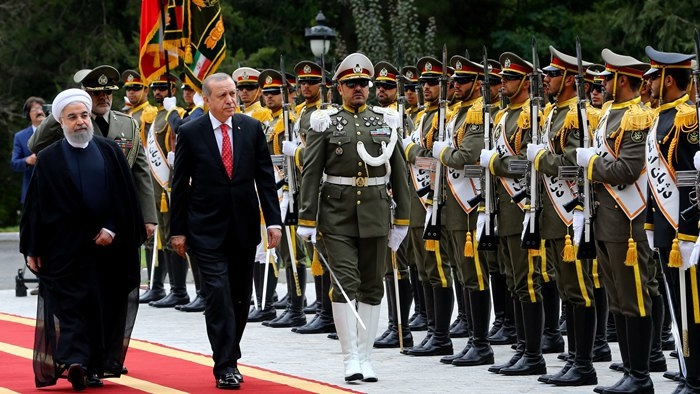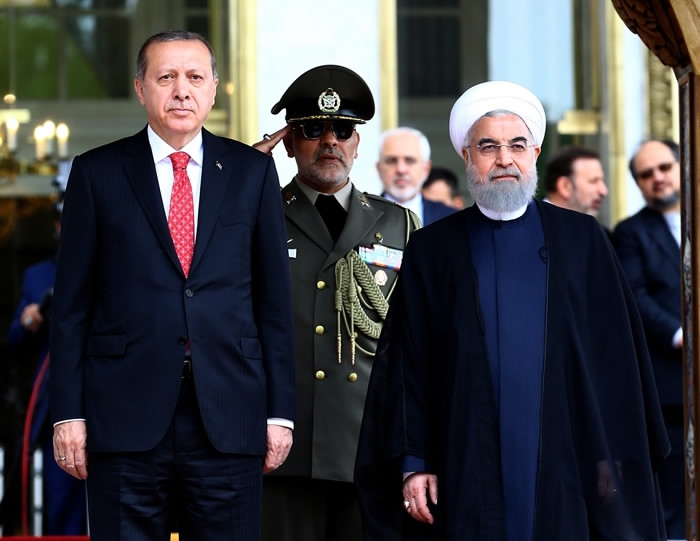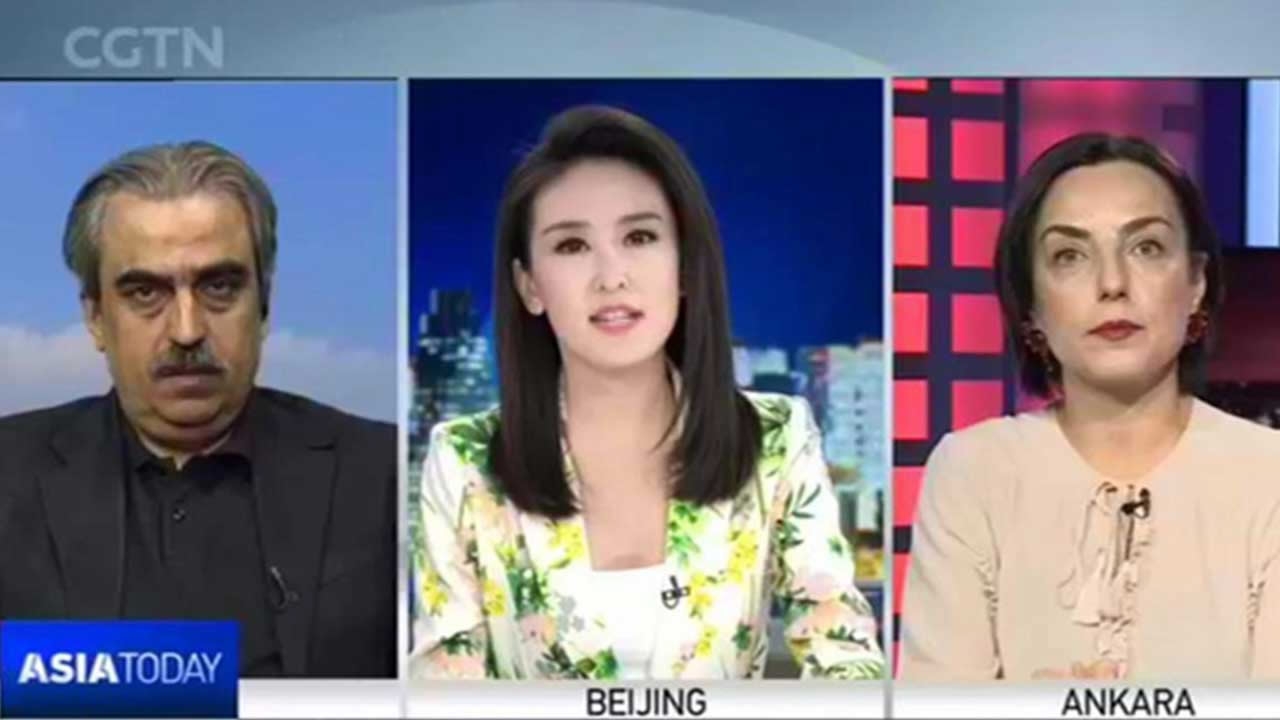
Politics
22:48, 04-Oct-2017
Iran, Turkey getting closer after Kurdish referendum
By Zhou Wenjia

Iran and Turkey are growing much closer together, according to Mostafa Khoshcheshm, a senior analyst and commentator based in Tehran. He told CGTN that it's a result of Iran and Turkey's policies to contain the Kurdistan government's independence bid, as well as the recent success within the framework of Astana talks over Syria.
This also gives rise to a new era of regional collaboration. According to Khoshcheshm, Iran and Turkey have long been good neighbors with increasing economic ties. However, during the last decade, they were pursuing different political agendas in their foreign policies, especially in the Middle East with regard to Syria and Iraq. Now with the Kurdish crisis and the Astana talks, he thinks the two countries can see more common benefits and interests.

Turkish President Recep Tayyip Erdogan (L, front) with Iranian President Hassan Rouhani (R, front) during a welcoming ceremony in Tehran, Iran, October 4, 2017. /Reuters Photo
Turkish President Recep Tayyip Erdogan (L, front) with Iranian President Hassan Rouhani (R, front) during a welcoming ceremony in Tehran, Iran, October 4, 2017. /Reuters Photo
Turkish President Recep Tayyip Erdogan has arrived in Iran's capital Tehran for key talks with senior officials. Erdogan is scheduled to meet Iranian President Hassan Rouhani and Supreme Leader Ayatollah Ali Khamenei to discuss boosting bilateral relations as well as regional and international issues.
His visit takes place against the backdrop of the recent controversial Iraqi Kurdistan independence referendum. Thus, Turkey and Iran's responses to the Iraqi Kurdish vote is expected to top the agenda.
Military action 'unlikely'
Tehran and Ankara issued thinly-veiled military threats to the Iraqi Kurdistan Regional Government (KRG), following its independence referendum. However, Khoshcheshem believes it is not likely these threats will be translated into military action. Instead, he said the two countries will first try economic and political leverage to force Iraqi Kurdistan to think twice before taking any further action.
An economic siege could wreak havoc on the KRG and force it to stop its secession efforts. But Khoshcheshem also thinks that posing a credible military threat would always remain an option if other actions fail to convince the Kurdistan government.

Ankara has been trying to seek regional consensus on how to block efforts by the Kurdistan Regional Government to split from Iraq. According to Tulin Daloglu, a senior political analyst based in Ankara, it is likely Turkey has much more at stake on the meeting's outcome than Tehran, since Turkey has a more vibrant Kurdish population that is more politically well-organized than the Iranian Kurds.
Although Turkey's Kurds have not indicated they want an independent Kurdistan, Turkey is worried that once borders start changing in the region, it could have further consequences. Meanwhile, stability could be the rarest commodity in the region for the foreseeable future.

SITEMAP
Copyright © 2018 CGTN. Beijing ICP prepared NO.16065310-3
Copyright © 2018 CGTN. Beijing ICP prepared NO.16065310-3